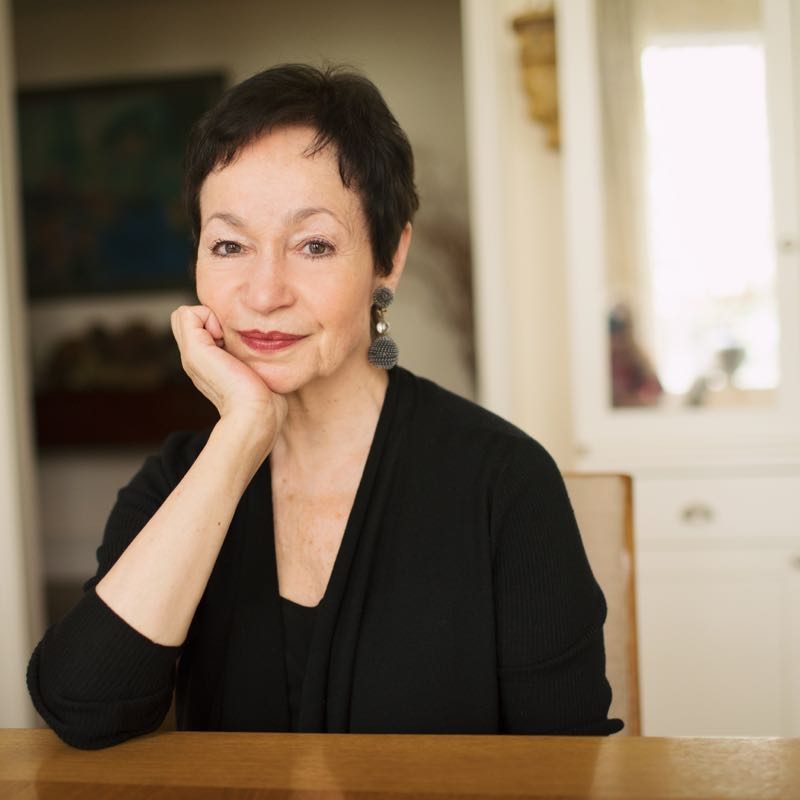An Interview with Lynn Ahrens
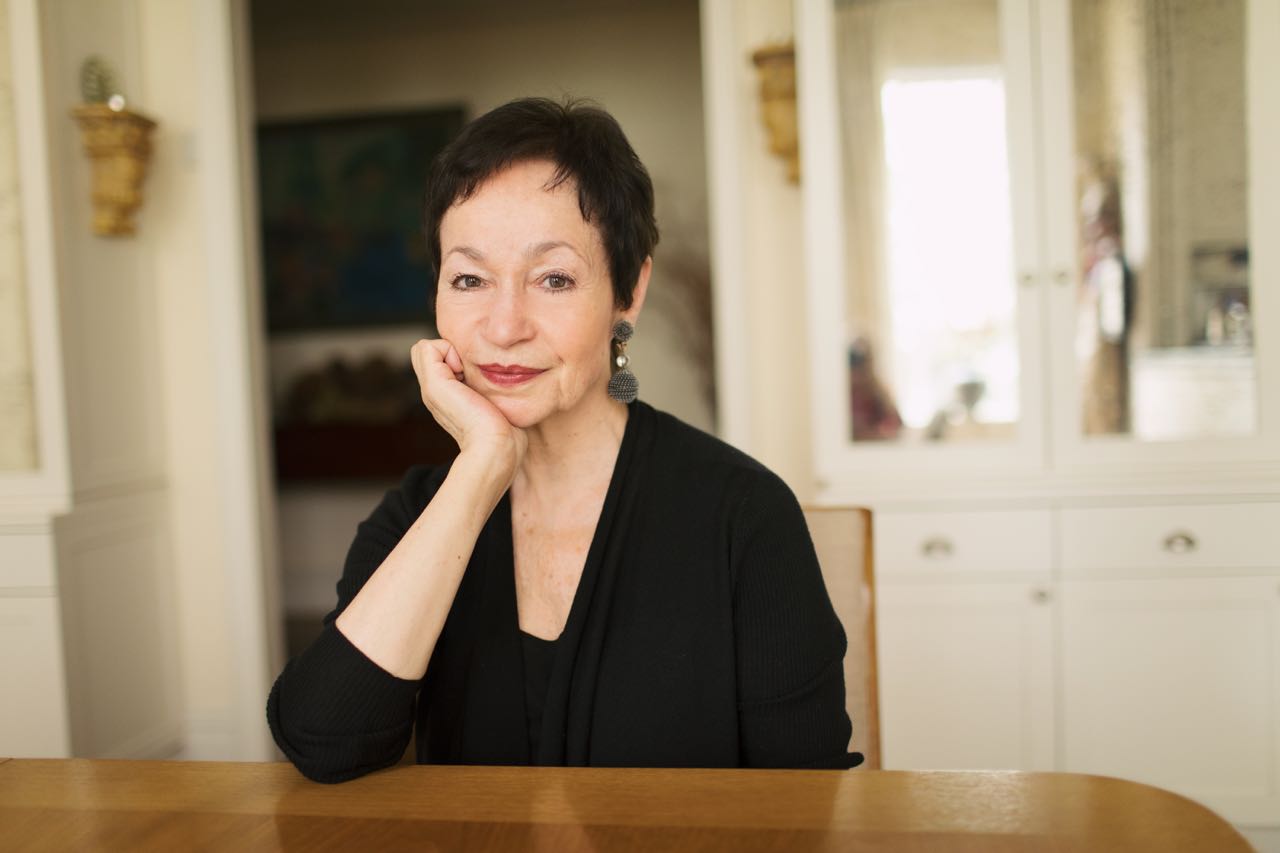
Written by Victoria Myers
Photography Jacqueline Harriet
June 28th, 2017
According to Ben Brantley of The New York Times, if you were a girl who grew up in the ‘90s, there is a fair chance that you hold a special nostalgia for the animated film Anastasia. Odds are he did not mean this as a compliment; nevertheless it is one. Despite the constant devaluation of girl culture in favor of things associated with boys and men, girls are some of the most discerning customers around, and there’s a reason they responded to Anastasia. Part of that reason was Tony Award winning lyricist, Lynn Ahrens. Lynn, along with frequent writing partner Stephen Flaherty, are responsible for a variety of American musicals that came to prominence starting in the ‘90s, including Ragtime, Once on This Island, Seussical, the iconic musical series Schoolhouse Rock, and more. Their latest project—turning the animated film of Anastasia into a live musical—is currently playing on Broadway. Lynn is also one of the few female lyricists/book writers currently making a living in the theatre. We sat down with her to discuss Anastasia, her process, how her thoughts on gender have changed, and more.
When you went back to revisit Anastasia, what was the process for translating it from the screen to the stage like?
The first thing we decided was that we didn’t want to just take the movie and put it on the stage. A lot of shows do that, and that’s fine, but we felt that with 20 years since the time we had first worked on it, we had changed and we felt the world had changed, and we thought it’s time to make it a little more mature, more emotional, and more for adults. That was our goal when we first set out to write. We brought Terrence McNally into the process, who’s an old friend, and we’d done Ragtime and A Man of No Importance with him. We thought he’d be just the right person to give it a certain gravitas, to take the history of the time seriously. The animated movie is really not historically accurate in any way, shape, or form. It’s a fantasy and it’s a fairy tale. We thought Terrence would give it a little more weight, and we also felt that there were a lot of characters that we wanted to write for that we never had a chance to write for originally. We were just bubbling with enthusiasm to write a song for the Dowager Empress and for Dmitry, who doesn’t really have a song of his own in the movie. Our goal when we first began, in a nutshell, was really to do a different version and make it ours.
You touched on the next thing I wanted to ask, which was how you balanced keeping the things people love about the movie with making it different and incorporating more of the history and what’s happening in the world now, for a 2017 audience?
All of that comes into discussion when you’re working on a musical. The first thing you want to do is make it something you love and something you’re very proud of. There were certain songs in the original movie that we just loved. We thought, “We can’t do better than these songs. These are great.” Like “Journey to the Past” and “Once Upon a December,” those are wonderful. Then there were some other songs that we liked a lot and we thought we could make them different for the movie. For instance, the opening number is kind of the same tune and the same hook, but the dramatic progression of the song is much, much different and the words are completely different. Same thing for “Learn To Do It.” There are parts of it that came from the movie and parts that we reinvented. We realized that the original movie has this fan base. They love the movie. They know every frame, they know every word, they know every lyric, they know the characters’ clothing. We thought we wanted to offer some feeling of that original movie that made such an impact, but also to offer new things. I think there was a balancing act, and there always is in adapting something. You have to try to honor the source material, and then make it your own.
Maury Yeston, who’s an old friend from years ago, once said something like, “You take your source material. You kiss it goodnight. You put it under your pillow, and in the morning you throw it on the floor and step all over it.” And it’s basically that. You try to honor it and then you try to go in new directions.
What’s your writing process like for that? Did you go back and try to be like, “What was the original impulse for this song? What was I thinking about?” Or do you try to look at it more with fresh eyes, or some combination?
I think it’s a combination. For example, “Journey To The Past,” we knew that for the movie she had to get from her orphanage all the way to St. Petersburg. We knew we needed to write a song that took her on this journey that the animators could literally draw. We had to write a song that accomplished that, and it also needed to be a song that was full of hope and full of fear, and we came up with “Journey to the Past.” In this version, we decided that it shouldn’t be her first song because she hadn’t started her journey yet. She has to find out how to go and she has to get on the road. We figured out that it should be the last song in Act I. We were constantly trying to remember the first impulse and [think about] what’s our impulse now. But for the new songs, they happened the way any musical happens. They bubbled up out of scenes or out of discussions about character. We created a new character named Gleb, who is the Russian officer, and his mission is basically to prevent the rise of Anastasia because it becomes a threat to the government. For him, we discovered in our conversations that his background could be very interesting. That his father could have been one the guards that actually executed the Romanovs. That brought this whole other level in and it led to one of the songs that he sings in this show called “The Neva Flows,” in which he tells about his childhood. All of those things happen as you go along the road of writing a musical. You make discoveries, and if they surprise you and if they move you as the writer they probably will work in the theatre.
What was your process like for creating the character of Anastasia and how did that evolve? Especially since songs tend to be one way to give characters interiority.
In the animated movie she’s a spunky gal, very American in a weird way. She’s very, very forward, very spunky. We wanted to keep that quality, and yet we thought, “She’s a damaged individual. She has had something happen to her in her past where she’s lost her memory,” and what is it like not to have a memory? What is it like to wander with no identity and to not know who you are? On some level, I think that’s a feeling we all have to some extent. We don’t have amnesia, but when we’re young and as we grow up we’re always trying to figure out who we are and where we belong in the world, and that’s her struggle. We felt we wanted to dramatize that and bring a darker color into her character so she’s not just a great gal who has a great adventure and ends up with the guy. We wanted it to be a little more than that. Because we brought those kinds of colors into her character, those feelings of loss and of grief and of pain and not knowing where you belong, I think that’s why her scene with the Dowager Empress is so good and so powerful; she finally finds who she is and where she belongs in the world and it all comes back to her. I think that helped the character a lot to grow and become something more interesting.
In this version there’s also more of an emphasis on the relationship between family, country, and duty.
Yes. That’s the other thing, because in the animated movie of course there was Bartok, the bat, andthese cartoon characters, and they were a lot of fun and we enjoyed writing stuff for them, but when we came to do this show we knew we couldn’t use them. We just didn’t want to. They were too young and too silly and too non-real. [Instead] we came up with Gleb who is conflicted between his duty and his humanity, basically. It’s that he’s either his father’s son or he’s not. He either pulls that trigger or he doesn’t, and that’s what he has to come to terms with, and I think that’s a contemporary dilemma for people these days: do you follow what you’re being told, what you’re being asked to do, or do you follow what you know in your heart is the right thing? That was a wonderful character to explore and to write, and I think it also brings another level of interest to the show.
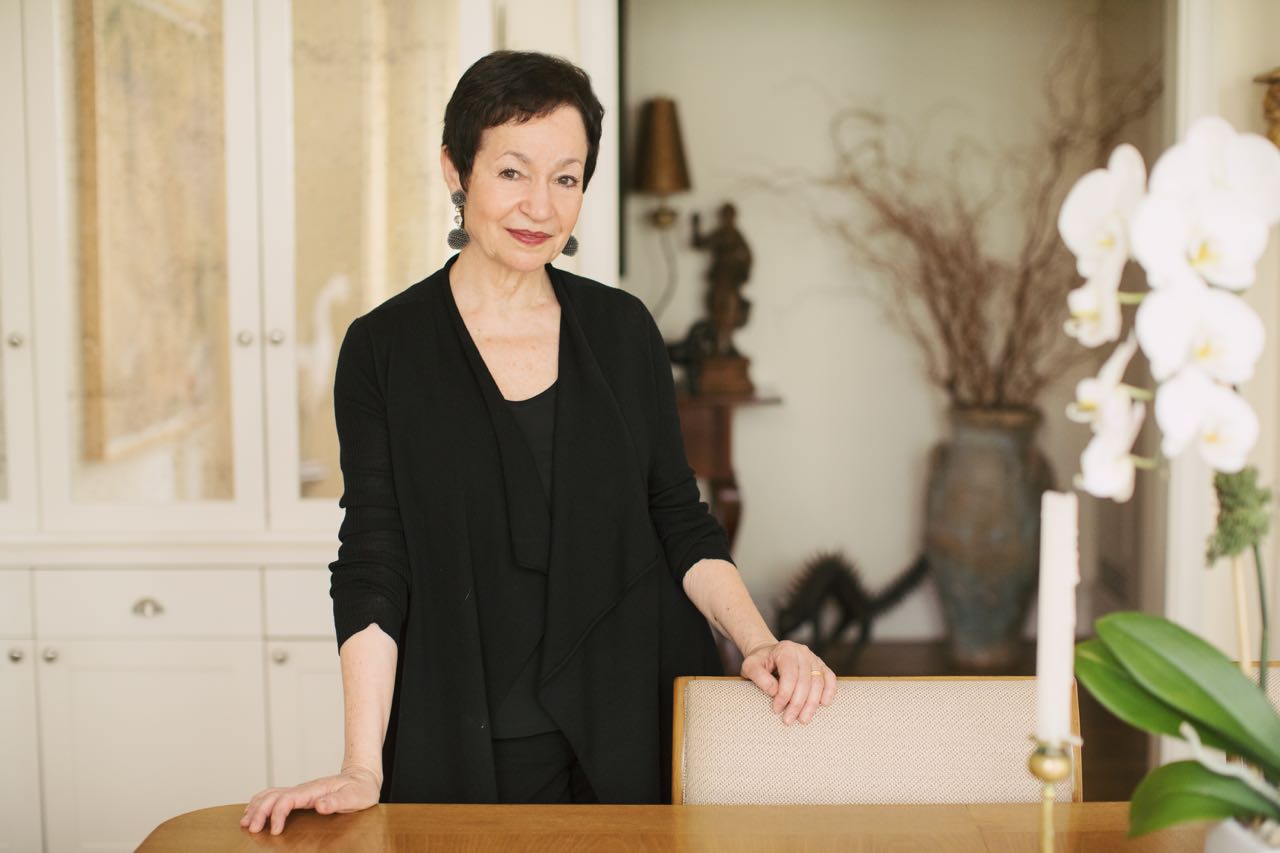
What was your collaboration like with Terrence McNally? How do a lyricist and book writer work together?
I would say that the lyrist is the bridge between the book and music. Very often Terrence writes something that’s just so beautiful that it needs to be sung. There’s one line in the show specifically, which is he wrote this very beautiful little set of four lines, “I heard the shots. I heard the screams, but it’s the silence after I remember most. The world stopped breathing and I was no longer a boy.” We knew we wanted to use those words for Gleb. We had them in the middle of his song, and I suddenly said, “No, here’s where the poetry starts. Here’s where the music starts. ‘I heard the shots. I heard the screams, but it’s the silence after I remember most. The world stopped breathing and I was no longer a boy.’” Right there. The world stopped breathing seemed poetic to me. Terrence’s work is full of lyricism. His speeches—he’ll write a paragraph or a character and there’s a gorgeous song inherent in it.
Do we butt heads? Oh, yes we do. I’m always trying to get him to cut down the scenes in the middle of songs, and I’m always trying to get him not to say the things in the dialogue that I’ve already said in the lyric, but overall we always come to a happy ending and we’ve been friends for years and years and years. It was a wonderful collaboration in that sense.
How does your brain work in terms of making sure that the character has the same voice when they’re speaking, singing, and also musically?
It’s kind of alchemy. The book writer generally establishes the tone of voice of the characters. If the characters are speaking in a dialect, I know I have to write the songs in a dialect. They can’t suddenly become a professor. A lot of it is dictated by just the tone of voice and the tone of language that a book writer establishes. I’m a book writer too, so I’m adept at hearing character voice and knowing how to weave that into lyrics.
Stephen is a musical dramatist. Even though he’s just writing notes, they are always very specific to character, to the emotions of the moment, to what the character is feeling at that very moment and what the action is. He’s really, really sensitive and good about that, knowing how to build something musically and dramatically. We all three fit together.
One of the things that seems like it would be challenging is how you make sure the lyrics are done in a way where the audience can really hear what the person is saying and hear the story. How do you do that?
The audience gets to hear a song one time. It’s not like a book where you can put it at your bedside and pick it up the next night and read a little more or go back and catch what you missed. They get to hear it once, so they need to hear it and get it and get what you’re saying. I try to do two things. One is to be extremely specific and not general. I don’t like general songs. They don’t excite me. I try as best I can to make the language specific to the character, the things they’re talking about, the part of the world that they live in. I’m very careful not to make it sound like Lynn Ahrens. I try to make it sound like the character. Then the other part is how words get set on notes. As an example, I’ll just go back to Ragtime for a second because Ragtime music is very syncopated, and that was the hardest show I ever had to set, because if you set on the upbeats and you don’t set them correctly, you cannot understand any word that’s being sung. It was very difficult to try and set syncopated music. I think lyrics should be conversational and they should come out of the character’s mouth as though they would have said them but they’re just singing them. There are all these little parts of the craft that I am concerned with and I think about consciously when I’m writing a song, but really the bottom line is you want the audience, on one listen, to know who that character is, to understand what they’re saying, to get the point, and to feel for them.
Are you visual when you write?
I am visual. I like to think about what the character is doing as they’re singing or what is happening on the stage. It’s something that I find myself telling young writers all the time—ask what’s happening on that stage—because they will write a beautiful ballad that’s three or four minutes long and there’s somebody just standing there and singing, and unless you have the greatest star in the world it will not hold stage. I like to think, “Are they walking across the stage to pick something up that they have to have in their hand, or are they running away from something? Are they getting dressed?” In Anastasia, one of the moments that I like a lot is the song “Still” that Gleb sings. As he sings it he’s in a quandary: “Is she Anastasia? Isn’t she? I like this girl, but I can’t like her. I can’t. She’s lying to me, but maybe she isn’t.” He’s really in a quandary, and as the song’s progressing somebody comes and helps him on with his coat and somebody else comes and hands him his papers, and then somebody else comes at the end and hands him a gun. There’s this tremendous dramatic arc to the song and he’s just standing there, but there’s a progression and you see what’s going to happen.
Do you have a usual way into a song?
Well, there’s no one set way to come up with a song, but usually when Stephen and I work we sit around for a long time talking about the moment: What are they feeling? What is happening? I’ll say words and then Stephen will put his hands on the keys and play a little sparkly vamp and I say, “Oh, I get it. She’s going to… ”
With Once on This Island for instance, Stephen was on the subway and he came up with this little motif of notes, and he played that for me and I said, “Oh, those are the prayers for the gods,” and we went from there. Sometimes it’s words first, sometimes it’s music first, but it always comes out of a dramatic impulse, an emotion, usually a character’s feelings at a particular time.
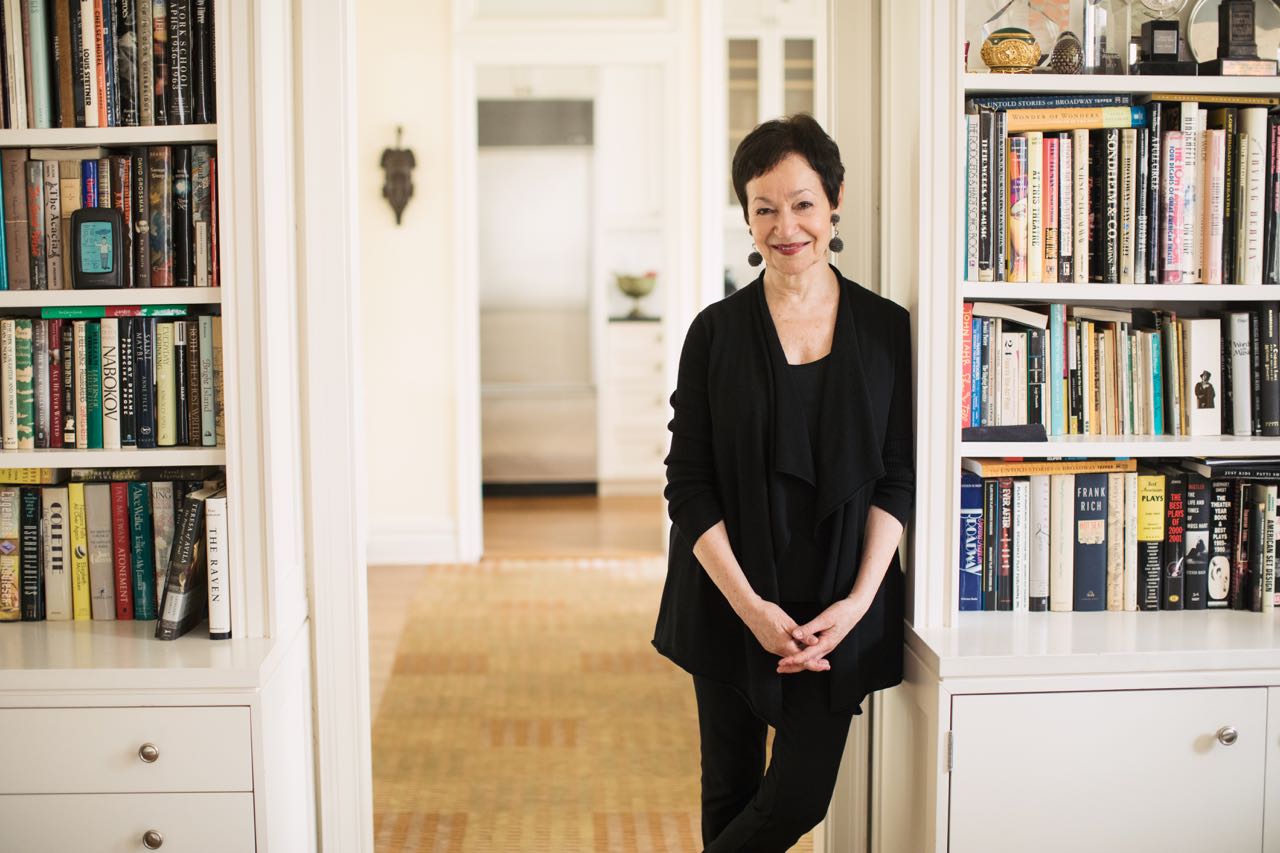
Are there other areas of culture that affect your work?
I’m a big reader. I’m a big newspaper reader. We see pretty much every movie there is to see. You live in the world and everything affects you—your political views, your family life, everything. Things that happen to you, things that happen to your friends, it all plays into your writing, I think. I try to stay up on everything as much as I can. I think in every show there’s something that comes from me very much, not just from those characters.
There’s always some impulse when you’re about to start a show. You think, “What does this have to say? What do I have to say with this idea? What do I want to put into the world?” I just have gotten done seeing several different Ragtimes, and that’s an interesting show for me because when I wrote it I thought, “It’s this wonderful period piece about all of these things that I’m interested in.” I’m interested in women’s rights. I’m interested in immigrant rights. I’m interested in the African American experience in America. I really loved writing that show, but now, everything in it is so spot on for the times we’re living in. I saw it three days after the president was elected. I just saw it down in Washington in the Ford’s Theatre where Lincoln got assassinated, and it just keeps becoming more and more modern as it ages.
Tell me more about what the experience was like of going to see that show now.
You just sit there going, “This is our country as we know it.” Black people are crying out that their lives matter. Women are saying, “I can never go back to before.” Immigrants are saying, “What is wrong with this country?” These are all lyrics from the show, and they’re all words from the television today. Sitting there, it really makes you think about where we are as a country and where we need to be and how do we get there. It’s very mixed emotions to see it right now. Just after Obama got elected we had the revival on Broadway, and when that little African American child goes running into his mother’s arms at the end of the show, everybody just started getting hysterical and crying because it was so hopeful and beautiful—and now it’s become something else.
What do you think is something that could be done to help with the development of new musicals?
Programs to teach it would be great. There aren’t very many. There’s the NYU program, which is a terrific program. There’s the BMI Workshop. There’s the Dramatists Guild Fellows, which Stephen and I began—all of which are good, but they’re all in New York, and I’m not that aware of any musical theatre writing programs across the country. There are tons of acting programs and performance paths for people, but there’s not a lot of musical theatre writing per se. I think that one thing would certainly be to encourage those kinds of programs to spring up around the country. I just think that young writers need to be encouraged and nurtured and there’s a lot of craft to instill. We were mentored by some of the greats, the absolute greats. Stephen Sondheim was one of our mentors, Peter Stone, Richard Maltby, Sheldon Harnick, these people gave their time to us. We like to give our time to others in the same way because we like to pass it on.
Once you have a musical, what do you think is helpful in terms of getting it from the workshop stage to actually on stage?
I think it’s really, really hard now. We had a big luxury. When we first began, we were noticed by Andre Bishop, who was then the Artistic Director at Playwrights Horizons, and Ira Weitzman, who was the head of musical theatre development, and because we came to their attention they produced our very first show, Lucky Stiff, at Playwrights Horizons. Then they produced our second show, Once on This Island, and they believed in us. Even though Lucky Stiff was not a particular success, they took another chance with us on Once on This Island and it moved to Broadway. Then Andre went over to Lincoln Center and Ira went as well, and lo and behold, they produced My Favorite Year there. Then they produced three other shows: Dessa Rose, The Glorious Ones, and A Man of No Importance. We did five shows with the same artistic directors. That was so lucky and also so rare in this business that producers actually invest in young writers, whether they’re successful or not. Often that can only happen in not-for-profit theatre.
All producers are looking for projects, and they’re all looking for writers, but what they tend to do now is, rather than say, “We’re going to get you a production,” they develop it and they develop it and they develop it, and there’s a reading, and then there’s a workshop, and then there’s another reading, and another reading, and little by little the young writers lose sight of what they were writing in the first place and the projects usually don’t get better, and they usually fade away.
It’s very difficult to get that break where a producer says, “I believe in you. I believe in your project. I’m going to put money behind it, goddammit, and I’m going to see that it happens.” That’s all I can say. It would be wonderful to find really committed commercial producers who are willing to take chances a little more.
In the last few years there have been an increasing amount of conversations about gender issues in the theatre. When you first started, what was that something you noticed? How did it affect you?
I will be very honest. When I first started I took no notice of gender issues. I was so excited to be writing something for the theatre. I had a career before I came to theatre. I came to the theatre relatively late. I did television shows for children and I did advertising and jingle writing, and I had several careers leading up to this one. By the time I got here, I really just was so eager to start writing this form. I felt that it had taken me too long to get here, and this is what I really was intended to do. I just had my eyes and my ears on the writing and on the process of learning and getting produced, and learning some more and getting produced. It was only later that I began to be aware really how few women were doing it and how I seemed to be one of the very few who was having any sort of success or any sort of recognition. Since then, I think things are getting better. I just went to the Lilly Awards on Monday night. They’re wonderful, because they’ve not only brought women writers to the fore, they rewarded them and recognized them in the most delightful way for their accomplishments, but they’ve also been very active in pointing out how few female playwrights and writers across the country get produced in relation to males. I’ve become more and more conscious of my responsibility to encourage young women as best I can. I think it’s important.
When you were first starting to write for the theatre and gender wasn’t something in your head, do you feel like there were any pros to that, in the sense that you didn’t have that mental block?
I do. I think if you were a young woman starting to write now, you would say, “There are roadblocks to my career.” The roadblocks being that artistic directors choose more plays by men than by women; there are very few female music directors; there are very few female lyricists. And they would know that now. I did not know that. I’m sure everybody says they were raised by their parents to believe they could do anything, and I was. It never dawned on me that I would be stymied in any way by my gender. Again, I had been a senior vice president in a major advertising agency. I had been a successful jingle writer. I had an Emmy Award as a television producer and writer. Nothing seemed to be stopping me, and it didn’t occur to me that anything might. It was later that I became more thoughtful about that issue, not so much for myself, but for other young women trying to get into the business.
Anastasia was a movie that was really popular among girls. Do you feel that there’s a way that work by and about women is talked about differently than perhaps if it were by a man or about a man?
That’s a loaded question. I don’t read reviews, ever. Yes, I think that probably there is a difference in how shows are reviewed by male critics. I do think that we should have female critics. I do think that there’s a difference. I can see it in the reviews that I do read of other people’s work from time to time, and it’s infuriating. It’s patronizing. People get praised because they’re women and they get criticized because they’re women, and being a woman shouldn’t have anything to do with it. It should be about the work and not your gender, and not the agenda of the person talking about the work. Yes, I think there’s a difference sometimes.
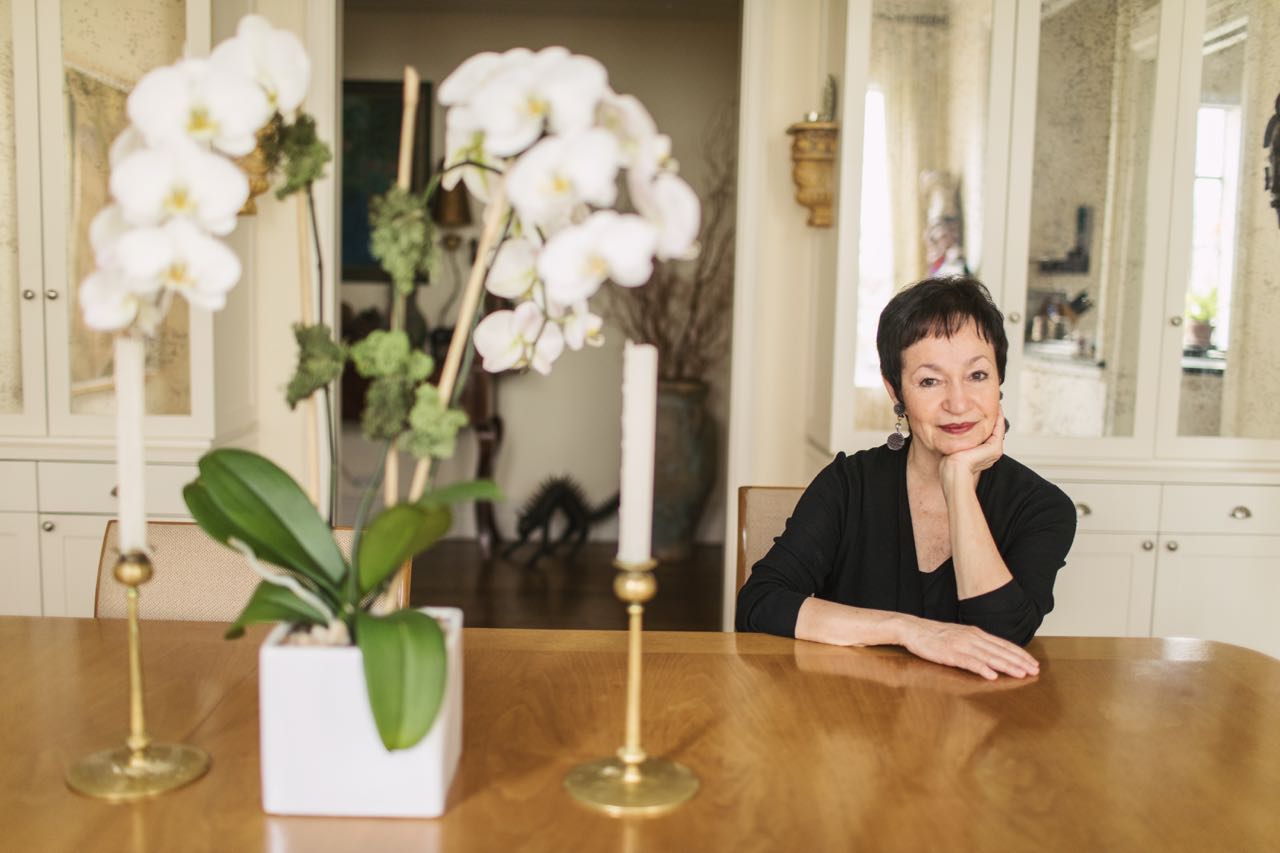
When it comes to mentoring young female writers, is there a particular point in their careers that you feel like it’s most important to have mentoring?
I guess it’s really when they start to write, and that can happen when they’re in high school and it can happen when they’re in college and it can happen after they leave college. For me, what’s most satisfying and what I think helps the most is when people come to you with a certain knowledge, and then you can help them shape their talents, as opposed to somebody saying, “I wrote a song. It’s my first song.”
Twenty years ago, did you think that in 2017 the theatre landscape would look different than it looks now?
To be honest, when the first Disney show arrived on Broadway, my friend [director] Mike Ockrent said, “That’s the end of Broadway as we know it,” and I said, “What are you talking about,” and he said, “It’s going to become a landscape of pre-packaged shows where there are brand names and audiences are not the typical New York educated audience,” and so on and so forth. He said, “It’s going to change the landscape,” and I totally poo-pooed that, but I think he was right on some level.
Here I am doing a show called Anastasia, which has a brand name. I’m not doing it because of that. I’m doing it because I did the movie, and I love the show and I love the story, but I do think that there is something now that almost demands something known about the show, whether it’s a star, or whether it’s the name of the show or something. There are two exceptions to that this year, both of which I admire very much. One is Come from Away and one is Dear Evan Hansen, both of which are original ideas and have something to say and didn’t come pre-packaged. In that sense, I think there’s certainly hope, but it’s much harder to get those shows up and to make them successful than something that has a Disney title.
What’s something you think the theatre community can do to help increase gender equality for women?
That’s a really, really hard question to answer, because actually it’s not so much in our power. As writers, we can write shows about women and we can cast women, but producers and artistic directors, I think they should be aware of the imbalance of shows that represent women and that are written by women. Most of those people are men, if you think about it. That’s one area: producers and artistic directors could certainly become more aware of the gender disparity.
Georgia Stitt has created a community of female composers because there are so few and she does it at New York SongSpace. I was just talking to her about this at the Lilly Awards. She said she’s created this group of women composers who come not to present their work to one another, not to discuss work necessarily, but to really pay attention to one another and be supportive of one another, and I highly encourage that. I think that’s so great. I said, “I’ll come. I’m not a composer, but I’ll come talk to you guys or have a cup of coffee.” I think that’s always a good thing. I think a little generosity toward fellow human beings goes a long way in this business. There’s no point in being protective of your turf. The more you share it, the more turf there becomes, and I think that’s a good thing for everybody.

